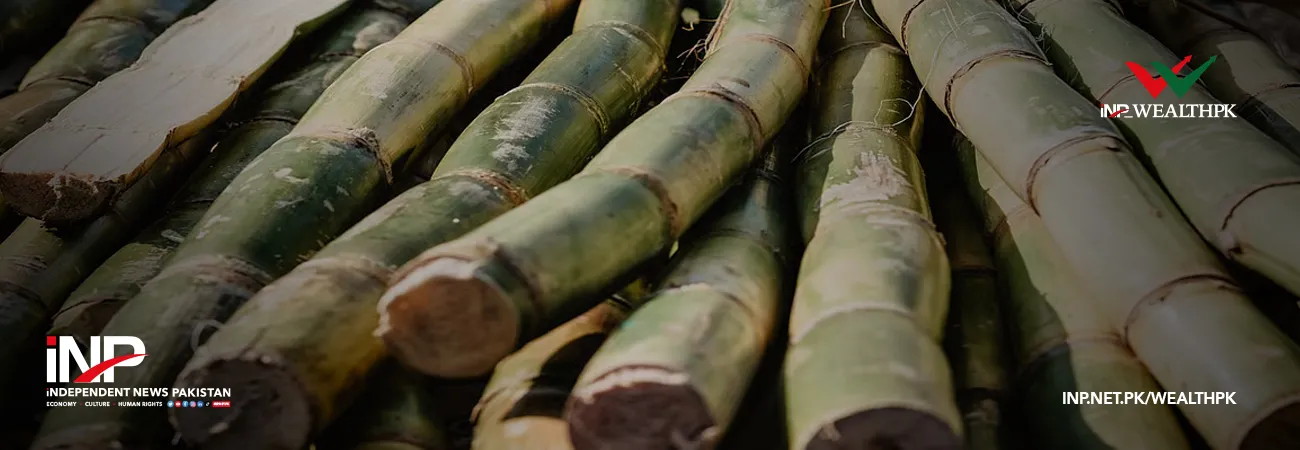INP-WealthPk
By Ayesha Saba
ISLAMABAD, OCT 28 (INP-WealthPK): Most studies and numerous market trends indicate that the Shariah-compliant mode of financing or Islamic banking is playing a positive role in the growth of Pakistan’s financial sector.
The Asian Infrastructure Investment Bank (AIIB) and some Chinese banks have made plans to establish Islamic financing frameworks to encourage and provide Islamic financing products.
The resources of Islamic establishments have grown to double-digits worldwide and some conventional banks have also opened Islamic finance divisions.
Islam preaches about equal distribution of income and wealth among all classes of society, and strongly objects to the accumulation of wealth by some. It provides an exceptionally powerful and effective banking and finance system. The key element of an Islamic economic society is the prohibition of interest (Riba).
Islamic banking appears an attractive system to address curses of poverty, unequal distribution of wealth, unethical practices, and disparity in purchasing power of consumers, which are the byproducts of Riba.
Over the years, the governments in Pakistan have been trying to expand the scope and outreach of the Islamic banking system to benefit the consumers as per the country’s constitution.
The current Pakistan Tehreek-i-Insaf government has also shown its commitment to promoting Islamic banking.
This mode of banking has also remained a priority area for the State Bank of Pakistan (SBP) as it has issued a strategic plan for the development of the sector. The bank has issued revised instructions to expand Islamic Bank Window (IBWs) to help promote Shariah-compliant financial services and increase financial inclusion in Pakistan. The central bank aims to take Islamic banking to one-third of the overall banking sector by 2025.
The central bank has encouraged the establishment of full-fledged Islamic banks in the private sector. As a consequence, the commercial banks have set up subsidiaries and separate branches for Islamic banking.
Currently, 22 Islamic banking institutions, five full-fledged Islamic banks and 17 conventional banks having standalone Islamic banking branches are offering Shariah-compliant products and services. Several steps have also been taken for the implementation of Musharaka, Modaraba, Takaful modes of financing.
SBP released its strategic plan (2021-2025) which aims to set the target for the country’s Islamic banking assets to reach 30 percent of the market share by 2025 from 18 percent last year, a projected growth of 76 percent.
The Islamic Banking Industry (IBI) contributed 23 percent more than the deposit growth during the third quarter of the fiscal year 2021 (3QFY21), and this demonstrates the presence of huge liquidity in the sector.
 Pakistan needs to copy the Malaysia model where the Islamic financial system has evolved as a viable and competitive component of the overall financial system. Malaysia has become the largest Islamic banking, Sukuk (Shariah-compliant bond) and Takaful market in ASEAN (Association of Southeast Asian Nations).
The global economic crisis of 2008, and even the Covid-19 pandemic failed to affect the Islamic financial institutions because they were protected by their fundamental operating principles of risk-sharing and avoidance of leverage and speculative financial products.
An IMF comparative study on the impact of the global crisis on the performance and profitability of Islamic and conventional banks suggested that on average the Islamic banks performed better than the conventional banks during the crisis because of their lower leverage and higher solvency, and the other reasons can be the profit and loss sharing system and avoidance of interest.
Though Islamic finance can find rich social grounds for its growth and expansion in Pakistan, there are several challenges on the way.
The main challenge is a lack of understanding and awareness regarding the functioning model of Islamic banking. So, better awareness can sustain the legitimacy and growth of Islamic banking in Pakistan.
Community awareness regarding Islamic banking should be among the priority areas of the government as well as the Islamic banking sector.
To ensure access of a large untapped population of the country in rural areas, the authorities should introduce Islamic microfinance mechanisms there.
A well-functioning Islamic banking system holds promise for the Pakistani market given the emerging opportunities in the sector.
Pakistan needs to copy the Malaysia model where the Islamic financial system has evolved as a viable and competitive component of the overall financial system. Malaysia has become the largest Islamic banking, Sukuk (Shariah-compliant bond) and Takaful market in ASEAN (Association of Southeast Asian Nations).
The global economic crisis of 2008, and even the Covid-19 pandemic failed to affect the Islamic financial institutions because they were protected by their fundamental operating principles of risk-sharing and avoidance of leverage and speculative financial products.
An IMF comparative study on the impact of the global crisis on the performance and profitability of Islamic and conventional banks suggested that on average the Islamic banks performed better than the conventional banks during the crisis because of their lower leverage and higher solvency, and the other reasons can be the profit and loss sharing system and avoidance of interest.
Though Islamic finance can find rich social grounds for its growth and expansion in Pakistan, there are several challenges on the way.
The main challenge is a lack of understanding and awareness regarding the functioning model of Islamic banking. So, better awareness can sustain the legitimacy and growth of Islamic banking in Pakistan.
Community awareness regarding Islamic banking should be among the priority areas of the government as well as the Islamic banking sector.
To ensure access of a large untapped population of the country in rural areas, the authorities should introduce Islamic microfinance mechanisms there.
A well-functioning Islamic banking system holds promise for the Pakistani market given the emerging opportunities in the sector.





